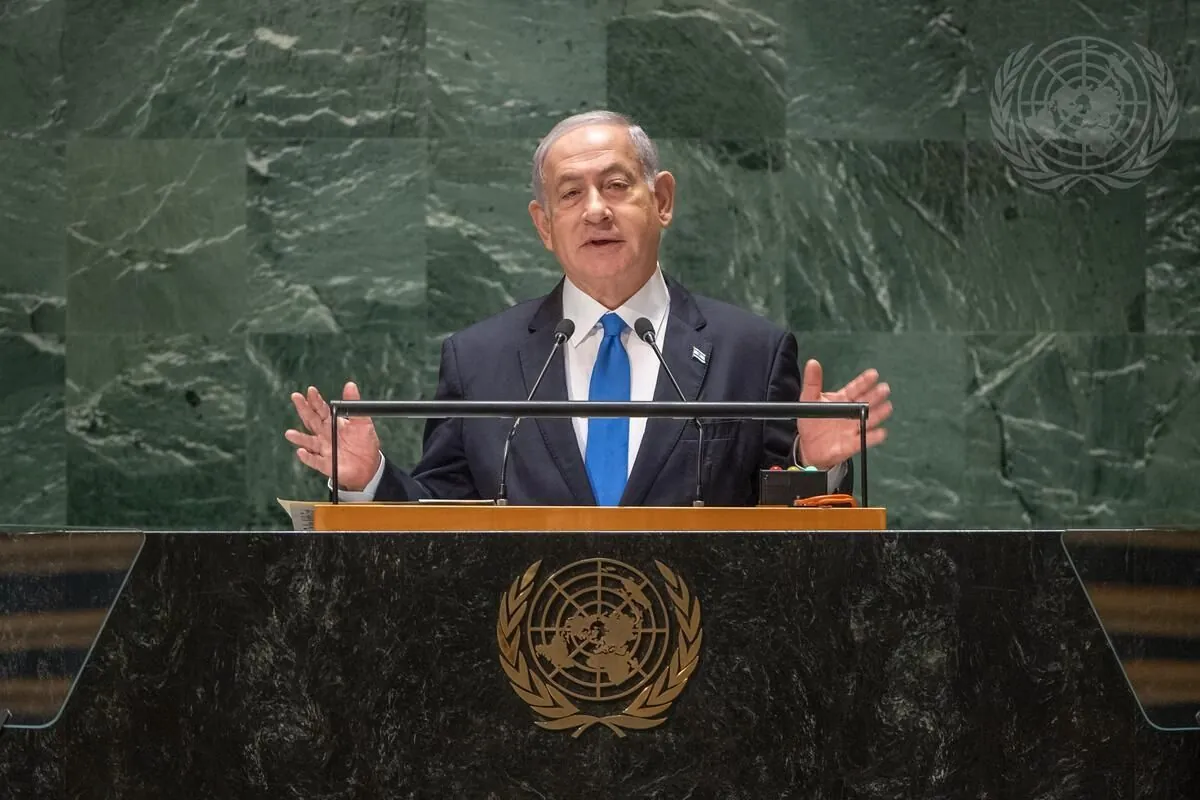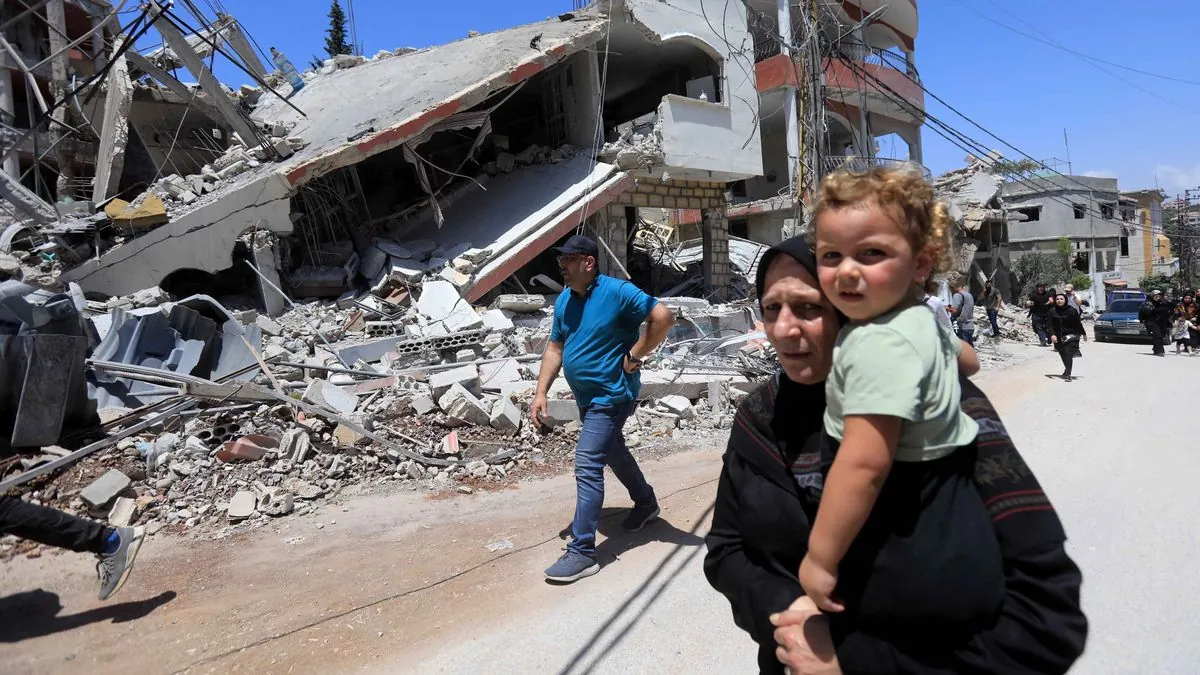Netanyahu Faces Global Criticism at UN Amid Escalating Conflicts
Israeli PM addresses UN as tensions rise in Gaza and Lebanon. World leaders call for cease-fire and adherence to international law, highlighting urgent need for peace in the region.

As Benjamin Netanyahu prepares to address the United Nations General Assembly, established in 1945, global attention focuses on Israel's ongoing military operations in Gaza and Lebanon. The Israeli Prime Minister's speech comes amid escalating tensions and widespread international criticism of Israel's actions.
In New York, law enforcement anticipates demonstrations against Netanyahu's policies. Among the protesters are relatives of Nimrod Cohen, an Israeli soldier held captive in Gaza since the Hamas attack on October 7, 2023. Cohen's family holds Netanyahu responsible for not pursuing opportunities for a cease-fire and the release of hostages. This situation highlights the complex dynamics of the conflict, with Hamas, founded in 1987, continuing to play a significant role.
The conflict has expanded beyond Gaza, with Israel intensifying its operations against Hezbollah targets in Lebanon. Formed in 1982, Hezbollah has been engaged in cross-border exchanges with Israel. The United States and France have proposed a 21-day cease-fire to de-escalate the situation, but Netanyahu has distanced himself from these efforts, citing pressure from his right-wing coalition.

At the UN, world leaders have voiced strong opposition to the ongoing conflicts. António Guterres, the UN Secretary-General, warned of a potential "all-out catastrophe" if the situation in Lebanon escalates further. The UN, with its 193 member states, has become a platform for global criticism of Israel's military campaigns.
Mahmoud Abbas, President of the Palestinian Authority, which was created in 1994, delivered an impassioned speech at the UN, calling for an immediate end to the violence in Gaza and the West Bank. The West Bank has been under Israeli occupation since 1967, a situation that continues to fuel tensions in the region.
Israeli officials, including UN envoy Danny Danon, defended their country's actions, emphasizing the precision of their strikes and the necessity of self-defense. However, this stance has been met with skepticism from the international community.
"Stop this crime. Stop it now. Stop killing children and women. Stop the genocide. Stop sending weapons to Israel."
Leaders from various nations, including Guyana, Iraq, Portugal, and Finland, have expressed concern over the escalating conflicts. They emphasized the importance of adhering to international law and called for an end to the violence. The situation has reignited discussions about the need for a two-state solution, a concept that has been debated since the UN partition plan for Palestine was adopted in 1947.
The ongoing crisis has also brought attention to the role of the UN Relief and Works Agency for Palestine Refugees (UNRWA), established in 1949, in providing humanitarian assistance to those affected by the conflicts.
As the international community grapples with these complex issues, the need for a peaceful resolution becomes increasingly urgent. The current situation serves as a stark reminder of the long-standing conflicts in the region, dating back to the first Arab-Israeli war in 1948, and the challenges that remain in achieving lasting peace.


































